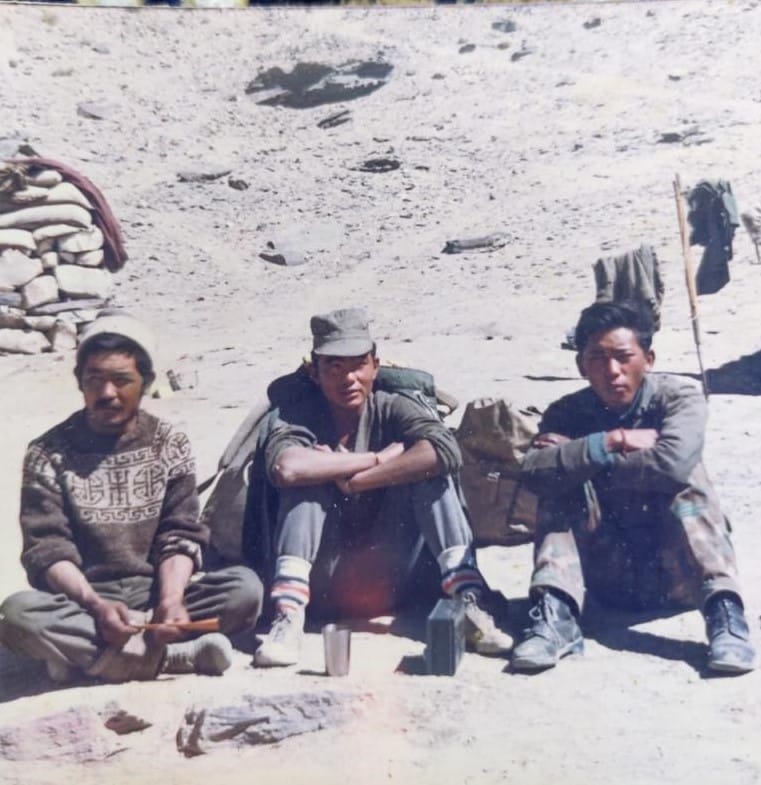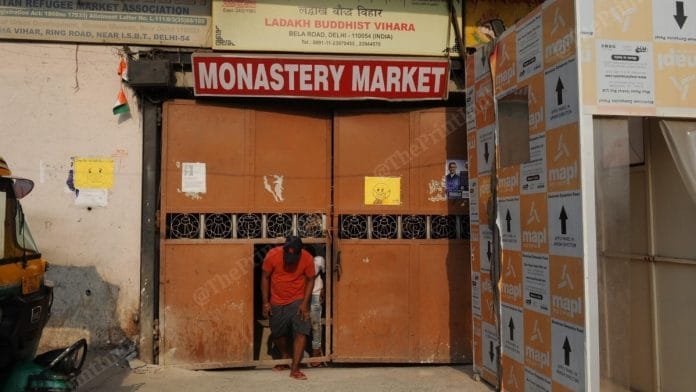New Delhi: In 2009, ex-Special Frontier Force (SFF) serviceman Tashi Phuntsok named his eatery in the national capital ‘Fauji Dhaba’, as an inside joke on the obscurity of the force. But his quip isn’t an inside joke anymore.
Nearly five decades after it originated, the elite covert paramilitary force Phuntsok served for 24 years entered popular consciousness due to the death of SFF Company Leader Nyima Tenzin amid the India-China standoff at the Line of Actual Control in Ladakh.
The SFF, or Establishment-22, had been set up just after the 1962 India-China War. It primarily comprises Tibetans in-exile and Nepali Gurkhas, who are known for their mountain warfare skills, and reports to the Cabinet Secretariat and the Prime Minister’s Office.
Over the force’s long history, many SFF servicemen fought in highly-sensitive military operations like Operation Eagle (Chittagong Hills, 1971 India-Pakistan war), Operation Bluestar (Golden Temple, 1984), Operation Meghdoot (Siachen, 1984), and Operation Vijay (Kargil, 1999).
“We were guerillas back then,” said Kunsang Youten, a former SFF soldier, who is now the public relations officer (PRO) of Majnu ka Tilla’s Residents Welfare Association in Delhi.
Youten said during his years of service from 1985-97, he patrolled critical areas along the LAC, like Chushul, Hot Springs and Pangong Tso — names that have found currency due to the LAC standoff that started in May this year.

It is not surprising that the force remained fairly unknown, said 58-year-old Tibetan-in-exile Phuntsok, who is a former SFF deputy leader and Sena Medal awardee.
“We have never asked for recognition because we volunteered… After hearing about Nyima (Tenzin), I am prepared to go to Ladakh today. Just give me two rotis and a bottle of water,” Phuntsok told ThePrint.
Phuntsok runs his eatery in Delhi’s popular Monastery Market, where he sells Tibetan food.
He is among the ex-SFF servicemen who live in Tibetan settlements across India — from Delhi’s Majnu ka Tilla to Karnataka’s Mundgod and Bylakuppe — and run small businesses like eateries or shops selling sports shoes, apparel and wholesale products.
Also read: India waving SFF and Tibet cards won’t scare China. Can’t pull levers you don’t have
Shops and pensions
Former SFF deputy leader Ugen Dorjee set up a jeans shop in Monastery Market, selling knock-offs of popular brands, after serving the force from 1974-99, including a year at the Siachen Glacier.
His store is located in the Lhasa complex, which houses a number of Tibetan establishments, at the back end of the market.
These days, the 62-year-old is struggling with the financial impact of the lockdown. “About twenty days ago, I re-opened for the first time since lockdown but I’m yet to receive a customer,” he said.
Asked how much the pandemic has impacted him, he said he is still recovering from the financial setback after demonetisation in 2016. “Before notebandi, I was earning Rs 8,000-10,000 a day but it hasn’t been the same since,” he said.
But Dorjee, who lives in Majnu ka Tilla, also receives around Rs 11,000 as monthly pension. “Only those who served more than 20 years receive pension. Before, there were only cash-awards,” he said.
In 1985, ex-servicemen who had 20 years of service started receiving lump-sum payments. In 2009, those with at least 15 years of service were brought at par in pay, allowances and pension with Indian Army personnel.
Thupten Dorjee, who is deaf in the right ear after 12 years of service, runs an apparel shop in the same Delhi market. Struggling with sales, he blamed online shopping, saying fewer youngsters come to his shop after brands like Shein gained popularity.
However, some ex-servicemen live away from bustling metro cities too. Take, for instance, former SFF sepoy Namgyal Dorjee, 41, who spends his days farming in cornfields in Bylakuppe, the second largest Tibetan-in-exile settlement in the world after Dharamsala. He sells corn for Rs 2-5 per kg in his village.
During the winter months of November-January, he travels to far off northern states, like a lot of the other ex-servicemen, to sell winter wear in temporary roadside stores. This helps line their pockets during the winter months.
Phuntsok also travels to Badagaon in Uttar Pradesh’s Baghpat district to sell winter clothing.
Asked how he deals with the cold, Namgyal said, “I’ve trained in the mountains and been part of Operations like Meghdoot and Vijay.”
Also read: Why southern bank of Pangong Tso is the new flashpoint in India-China stand-off







It is very Difficult to mention any suggestions here .It is Avery Sensetive ISSUE TO TALK ANYTHING ABOUT EX-SERVICEMAN AND Their After Service Life in The Civilian Society , EXCEPT TO PRAY GOD TO BESTOW ENOUGH STRENGTH TO ALL THEIR FAMILY AND RELATIVES TO HAVE A PROGRSIVE , PROSPEROUS AND HAPPY LIFE .
With Best Wishes For Bettermnet Always ,
Yours sincerely ,
SHIVA KUMAR.T.N. B.Sc.L.L.B.A.MIB.M.
DIRECTOR ,
YOGAVASISTHA SAMSODHANA KENDRA ,
No 13 , 5th CROSS , NR COLONY ,
BANGALORE -560019.
Mobile/WhatsApp : +919483271683